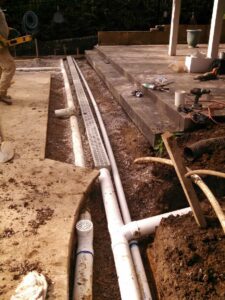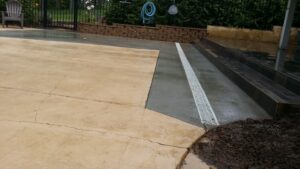

Solid PVC pipe is often used for gutters and downspouts because it is durable, resistant to corrosion, relatively inexpensive, easy to install, and can effectively channel water flow without clogging due to its smooth interior surface, making it a reliable option for drainage systems; unlike corrugated pipes, which can trap debris and potentially get damaged by tree roots.
-
Strength and durability:
PVC pipes can withstand significant pressure from water flow and soil weight, making them less likely to crack or break compared to other materials.
-
Corrosion resistance:
PVC is not affected by rust or other corrosive elements, ensuring a long lifespan.
-
Smooth interior:
The smooth surface of PVC pipes minimizes the accumulation of debris, preventing clogs and ensuring efficient water flow.
-
Easy installation:
PVC pipes are readily available, easy to cut and join using standard fittings, making them convenient for DIY projects.
-
Cost-effective:
Compared to other materials like metal, PVC is generally more affordable.
- Climate conditions: In areas with extreme temperature fluctuations, consider using a specialized PVC designed for freeze resistance.
- Proper slope: Ensure the downspout is installed with a sufficient slope to allow water to drain effectively.
- UV exposure: If the PVC is exposed to direct sunlight, choose a UV-resistant variety.
